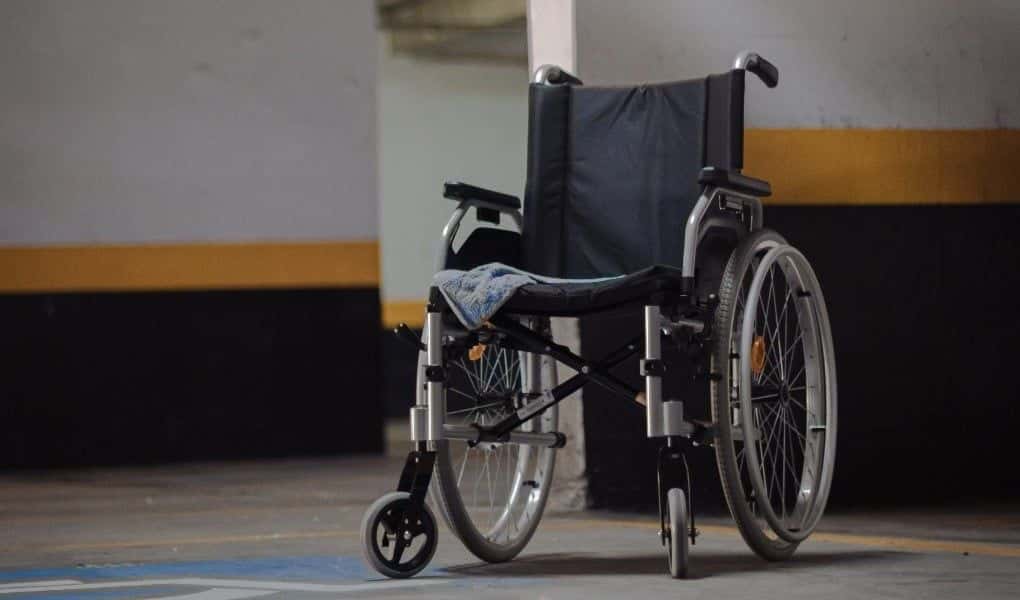Stroke Patient Left Paralyzed After Negligent Misdiagnosis
This case involves a 66-year-old female patient who became aphasic, suffered facial drooping, and was unable to recognize her family members.
Updated on
By the time she presented to the emergency room, her speech was coherent and as a result, she was given a stroke assessment score of 0. A stat CT was ordered for the patient which came back unremarkable. The patient was diagnosed with a possible transient ischemic attack. No stroke alert was called for the patient, and she was not given IV tPA. The patient later suffered a change in mental status while in the emergency room and called out in pain. Following the incident, the patient was sent for a stat MRI of the spine and brain which revealed a small focus of insufficient blood flow to the inferior parietal lobe. There was also a small focus of petechial hemorrhage in the area of insufficient blood flow. The patient then suffered a lack of normal flow void in the left internal carotid artery at the skull base. Per the record, the radiologist was also suspicious of carotid artery stenosis and recommended a CT angio of the neck and head. The CT angio suggested a subtotal blockage of the carotid artery on the left and also showed evidence of stenosis affecting the left M1 segment. The patient was left wheelchair-bound with right-side paralysis, limited verbal communication, and frequent seizures.
Question(s) For Expert Witness
What sort of changes in a patient's status would prompt you to page or inform a doctor (VS, mental status, neurologic exam of extremities, etc)?
Expert Witness Response E-006392
 This patients Cincinnati stroke scale score was 2 out of 3, considering that she had both a droop and speech affected. I would need to review the records to establish an NIH score, however the patient's Cincinnati score and presentation were classic for stroke. Drift is not mentioned as measured. She more likely than not qualified for TPA being that she was within the 3-hour window and it doesn't sound as if she had any contraindications. She may have also qualified for endovascular treatment which allows for a 6-hour window. A CT scan is not done to identify an ischemic stroke, as is ischemia can take an average of 6 hours to show up on CT. CT is instead done to rule out hemorrhage. Nursing had an independent duty to recognize this woman's classic signs of stroke and call a stroke alerts. Nursing further had a duty to advocate for a STAT telephonic neuro consult as part of the stroke alert pathway. Neuro along with the ER physician would then have been able to make the decision to initiate brain-saving TPA or transfer to a center capable of endovascular treatment. This was a clear breach of the well defined national standards set by the American Heart Association. American Stroke Association and Emergency Nurses Association to have failed to recognize signs of stroke and call a stroke alerts. I would, of course, need to review the records in order to make certain opinions.
This patients Cincinnati stroke scale score was 2 out of 3, considering that she had both a droop and speech affected. I would need to review the records to establish an NIH score, however the patient's Cincinnati score and presentation were classic for stroke. Drift is not mentioned as measured. She more likely than not qualified for TPA being that she was within the 3-hour window and it doesn't sound as if she had any contraindications. She may have also qualified for endovascular treatment which allows for a 6-hour window. A CT scan is not done to identify an ischemic stroke, as is ischemia can take an average of 6 hours to show up on CT. CT is instead done to rule out hemorrhage. Nursing had an independent duty to recognize this woman's classic signs of stroke and call a stroke alerts. Nursing further had a duty to advocate for a STAT telephonic neuro consult as part of the stroke alert pathway. Neuro along with the ER physician would then have been able to make the decision to initiate brain-saving TPA or transfer to a center capable of endovascular treatment. This was a clear breach of the well defined national standards set by the American Heart Association. American Stroke Association and Emergency Nurses Association to have failed to recognize signs of stroke and call a stroke alerts. I would, of course, need to review the records in order to make certain opinions.
About the author
Wendy Ketner, M.D.
Dr. Wendy Ketner is a distinguished medical professional with a comprehensive background in surgery and medical research. Currently serving as the Senior Vice President of Medical Affairs at the Expert Institute, she plays a pivotal role in overseeing the organization's most important client relationships. Dr. Ketner's extensive surgical training was completed at Mount Sinai Beth Israel, where she gained hands-on experience in various general surgery procedures, including hernia repairs, cholecystectomies, appendectomies, mastectomies for breast cancer, breast reconstruction, surgical oncology, vascular surgery, and colorectal surgery. She also provided care in the surgical intensive care unit.
Her research interests have focused on post-mastectomy reconstruction and the surgical treatment of gastric cancer, including co-authoring a textbook chapter on the subject. Additionally, she has contributed to research on the percutaneous delivery of stem cells following myocardial infarction.
Dr. Ketner's educational background includes a Bachelor's degree from Yale University in Latin American Studies and a Doctor of Medicine (M.D.) from SUNY Downstate College of Medicine. Moreover, she is a member of the Board of Advisors for Opollo Technologies, a fintech healthcare AI company, contributing her medical expertise to enhance healthcare technology solutions. Her role at Expert Institute involves leveraging her medical knowledge to provide insights into legal cases, underscoring her unique blend of medical and legal acumen.
Subscribe to our newsletter
Join our newsletter to stay up to date on legal news, insights and product updates from Expert Institute.
Sign up nowFind an expert witness near you
What State is your case in?
Subscribe to our newsletter
Join our newsletter to stay up to date on legal news, insights and product updates from Expert Institute.



